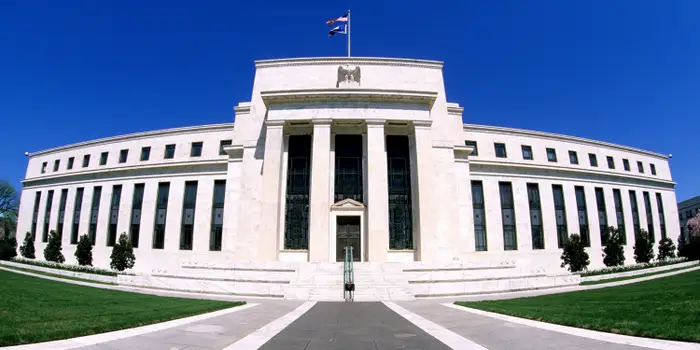
The Federal Reserve held interest rates steady Wednesday, but officials signaled they are prepared to raise rates again this year to tame stubborn inflation.
The central bank maintained its benchmark interest rate in the range of 5%-5.25%, the first time since January 2022 the Fed made no change to interest rates following a policy meeting.
Fed officials did, however, raise their interest rate forecasts for this year, signaling rates could rise to as high as 5.6%, implying two additional rate hikes are likely this year. Three officials see rates rising closer to 6%.
“Inflation pressures continue to run high,” Federal Reserve Chair Jerome Powell said at a Wednesday press conference. Getting inflation down to the Fed’s target “has a long way to go.”
Next year, officials see interest rates falling by 100 basis points to around 4.6%, higher than the 4.3% forecast in March.
The pause announced Wednesday, Powell said, shouldn’t be called a “skip.” What it does do, he added, is give the economy more time to adapt to prior hikes while letting Fed officials see the “full consequences” of the banking turmoil that roiled the financial system in the spring.
“We are trying to get this right,” Powell said.
Stocks closed mixed Wednesday. The S&P 500 (^GSPC) was roughly flat, while the Dow Jones Industrial Average (^DJI) fell 0.68%, or more than 200 points. The tech-heavy Nasdaq Composite (^IXIC) rallied off lows to gain 0.39%.
Many regional banks that struggled following the failures of several sizable lenders fell again Wednesday. PacWest (PACW) ended the day down 6.5%, Western Alliance (WAL) fell 5.8%, and Zions (ZION) was down 5.7%. Banks are highly sensitive to rate increases.
The Fed had raised rates at 10 straight policy meetings through May, bringing its target range from 0%-0.25% to 5%-5.25%, the highest since 2007, in just 14 months. Wednesday’s decision to hold rates steady was unanimous.
Since peaking at 9.1% in June 2022, inflation has come down, with headline inflation rising just 4.1% in May according to data released on Tuesday. On a “core” basis — which strips out volatile food and energy prices — inflation clocked in at 5.3% for May. That compares with 5.5% seen in April.
Both readings are still well above the Fed’s 2% target.
Updated economic projections released Wednesday, said Renaissance macro economist Neil Dutta, allowed the Fed to have it both ways — pause rate hikes and also be more aggressive in signaling future action.
“This is what the Fed had to do,” Dutta wrote in an email.
The Fed in its statement did leave itself room to raise rates again this year, keeping language that said, “In determining the extent to which additional policy firming may be appropriate … the Committee will take into account the cumulative tightening of monetary policy, the lags with which monetary policy affects economic activity and inflation, and economic and financial developments.”
Powell said at a press conference that the subject of what to do in July “came up” at the central bank’s Federal Open Market Committee meeting Wednesday but the Fed didn’t make a decision about what to do next month.
Powell also brought back language made popular by former Fed Chair Janet Yellen ahead of the Fed’s rate hiking cycle that began in 2015 — “live” meetings.
Asked directly about July’s meeting, Powell said — “One, [a] decision hasn’t been made. Two, I do expect that it will be a live meeting.”
Powell also emphasized that inflation isn’t coming down as quickly as the central bank had hoped.
“We want to see it moving down decisively,” he said. “That’s all. Of course, we are going to get inflation down to 2% over time. We want to do that with the minimum damage we can to the economy, of course. But we have to get inflation down to 2%, and we will.”
Along with its policy decision on Wednesday, the Fed released an updated Summary of Economic Projections (SEP), which outlined officials’ expectations for growth, inflation, rates, and the labor market over the balance of this year and the next two.
Fed officials see inflation finishing the year close to 4% now, compared with 3.6% prior. Unemployment is only seen rising to 4.1% from 4.5% previously. Officials now see stronger economic growth this year of 1% versus 0.4% previously.
Officials again noted that tighter credit conditions for households and businesses are likely to weigh on the economy, hiring and inflation and the degree of impact is uncertain.





























